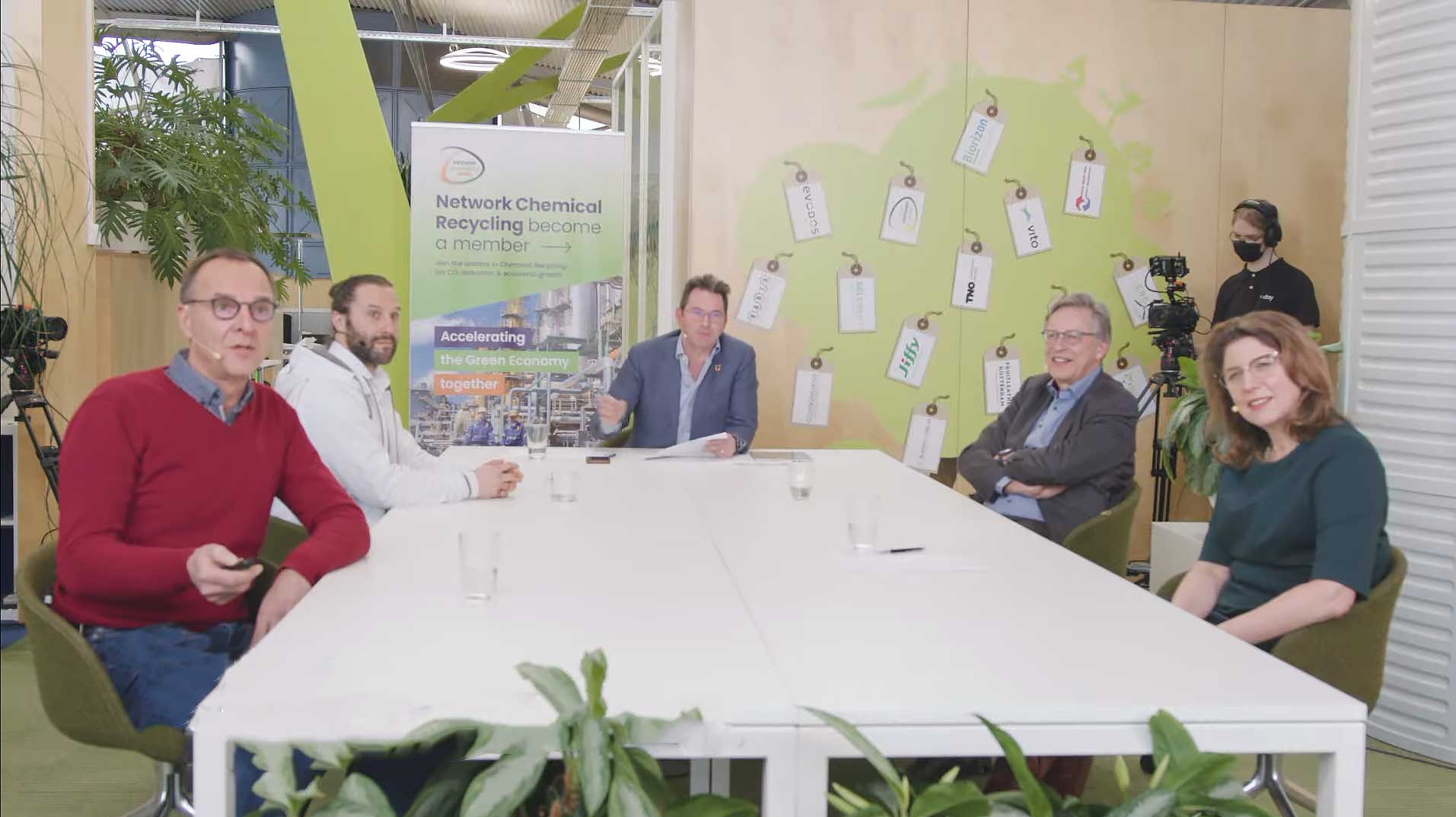The developments are moving very fast,” says Van Eijk. “There are already many companies in the chemical industry that are working with both biomass and waste plastics as raw materials. There is a need for insight into new technologies, matchmaking and a valuable network to realise chain collaborations and exchange knowledge and information. That is why the CBBD started the Chemical Recycling Network last year. This network consists of SMEs and large companies. It now has almost 20 members.
Chemical recycling connects the world of agro-food and waste with the world of chemistry. Chemical recycling is also part of the Green Chemistry, New Economy (GCNE) project in The Netherlands. Initiator and Managing Director of Brightsite Arnold Stokking: “We need to move from short-cycle (incineration) to long-cycle use of carbon. Chemical recycling offers that opportunity. This requires new business models and an innovative entrepreneurial climate in which new companies emerge and existing companies develop new activities.”
Stumbling block
It is not that simple. For example, waste legislation must be amended to accept recycled materials as new raw materials. Funding can also be a stumbling block, since chemical recycling does not yield much for plastic manufacturers. Stokking: “The challenge is therefore: how can we close the cycle? We can achieve this by working together, to form new chains and to give entrepreneurs a voice in The Hague and in Europe. Meanwhile, GCNE is involved in two applications in the National Growth Fund to obtain funding for various large projects around green chemistry and materials.
The Green Chemistry Campus (GCC) is one of the parties actively involved. Connie Paasse, director of the Campus, points to GCC’s role as a business accelerator, where entrepreneurs and various in-house experts support each other, as well as a pilot hall and, recently, outdoor space available for larger DEMO installations. “Because we work on the SABIC site, we have a large piece of land at our disposal where we can set up outdoor areas. These are suitable, for example, for demo plants in the field of chemical recycling and pyrolysis. We have applied for the permits and are in the process of preparing the land for construction with drainage and connection of facilities. The way it looks now, we will be able to move in the first new residents in the second half of this year.”
Companies have their say
Three companies that have since joined the Chemical Recycling Network presented themselves during the broadcast. One of them was PVC producer Inovyn, which sees ‘advanced recycling’ as a solution for making production circular. Recycling of PVC is a challenge, according to Eric Romers (Inovyn Manufacturing Belgium), because it contains chlorine and various additives. Chlorine causes corrosion in reactors and a number of ‘old’ PVC additives are no longer permitted in the EU. These have to be removed in a recycling process. “So we are looking for partners to get advanced recycling off the ground,” Romers said.
Vertoro is a company that has been pioneering oil obtained from the solvolysis of woody biomass for several years. In May, Vertoro will open a TRL-8 demo plant with a capacity of 1 kton per year at the Chemelot industrial estate in Geleen. CEO Michael Boot: “We focus primarily on fuels for the shipping industry, because that is where we can sell our oil quickly, but we are also looking to diversify on the chemicals side.”
Obbotec develops so-called ‘hydrocracking’ technology for processing biomass, whether or not contaminated with plastics. “Our feedstock is non-recyclable waste with a reasonable calorific value, from which we extract hydrocarbons, naphtha and gases,” says Gert Eilander. “We are developing a plant that can be set up locally, a small unit so you can process waste where it arises.” Currently Obbotec is realising a unit at Plant One in Rotterdam that works on a kilogram scale. “We are now looking for funding for a planned pilot of 1kton/a, the same production capacity as the final unit will have.”
Feedstock
A challenge for two of the three companies is the availability of ‘clean’ feedstock. Inovyn, for example, needs a mono stream of PVC. Vertoro depends on wood and wants to cooperate with the Dutch Forestry Commission, Staatsbosbeheer.
Arnold Stokking warns that recycling plastics alone can never produce enough raw materials to meet the chemical industry’s entire need. “The volumes needed to replace oil are enormous: 12 million tonnes in the southern Netherlands alone. To achieve these volumes, we need to look not only at residues but also at main streams, such as agricultural crops and forestry for materials. I am convinced that it can be done without getting in the way of other goals, such as biodiversity and nature.”
The livestream of the meeting on Chemical Recycling (in Dutch) can be watched on YouTube. More information about the Chemical Recycling Network can be found on the website of Circular Biobased Delta.
This article was written in cooperation with Circular Biobased Delta.



